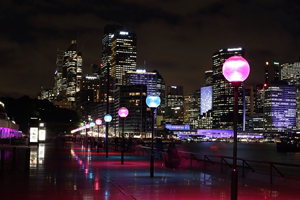The universal software system Sirius developed by the Institute of High Technologies of Belgorod State University is included in the Unified Register of Domestic Computer Software and Databases of the Ministry of Communications and Communications of the Russian Federation (minutes of the Expert Council meeting No. 175pr dated 03/21/2023).
The universal software system Sirius is designed to provide solutions to the tasks of operational dispatch monitoring of electric substations and allows to respond more quickly to emergency situations, which makes it possible to eliminate accidents. In addition, the software system and «Universal signal indicator» devices can also be used for remote monitoring of the presence of voltage and monitoring of discrete outputs in pumping stations, elevator rooms, server rooms, heating points, boiler rooms, traffic light cabinets.
The inclusion of the IVT BelSU product in the Unified Register of Russian Computer Programs and Databases means that the universal software package is officially recognized as Russian software and approved for procurement by state and municipal institutions. The inclusion of the universal software system Sirius in the register also confirms the quality and reliability of the company’s innovative product.

